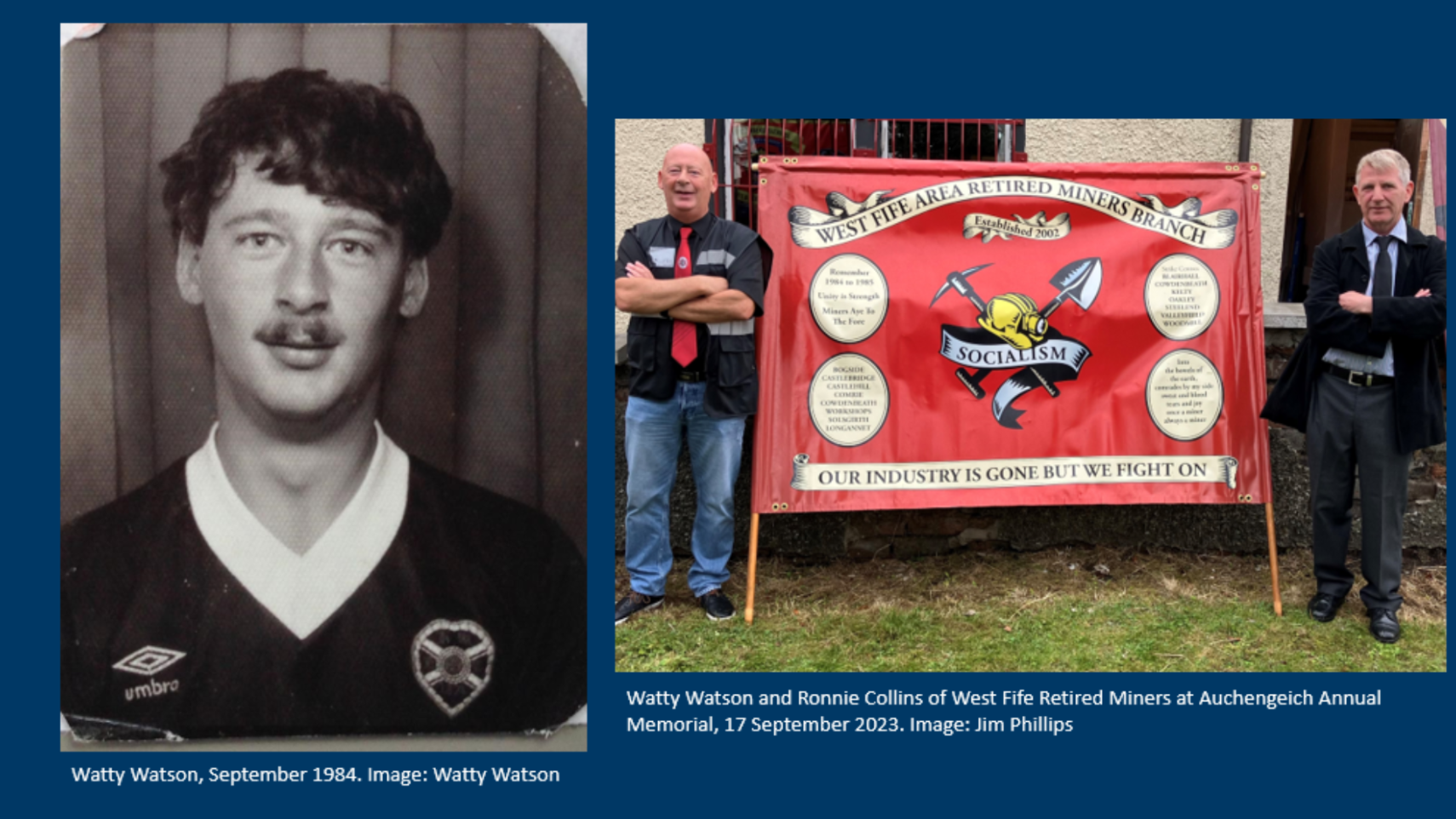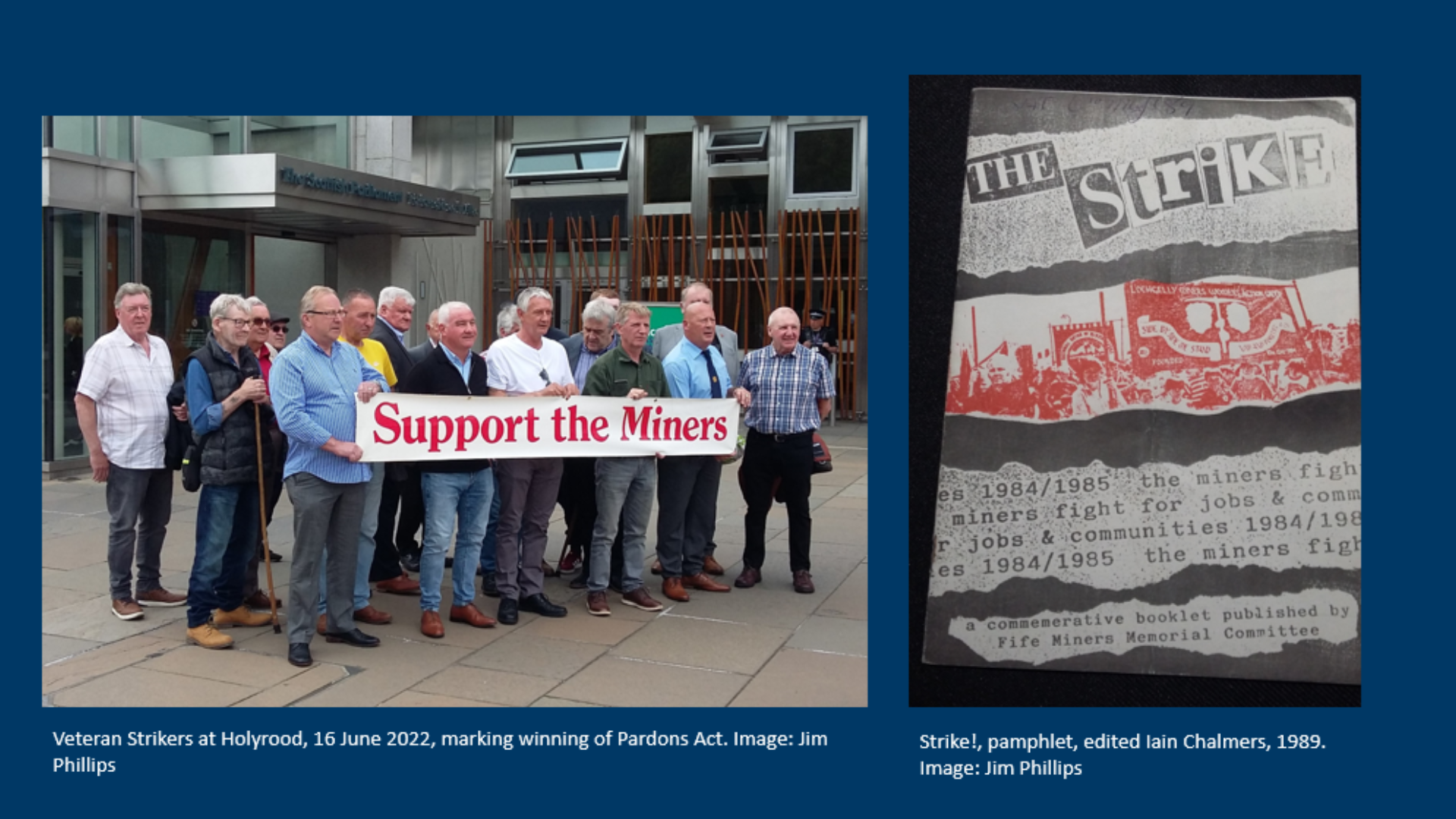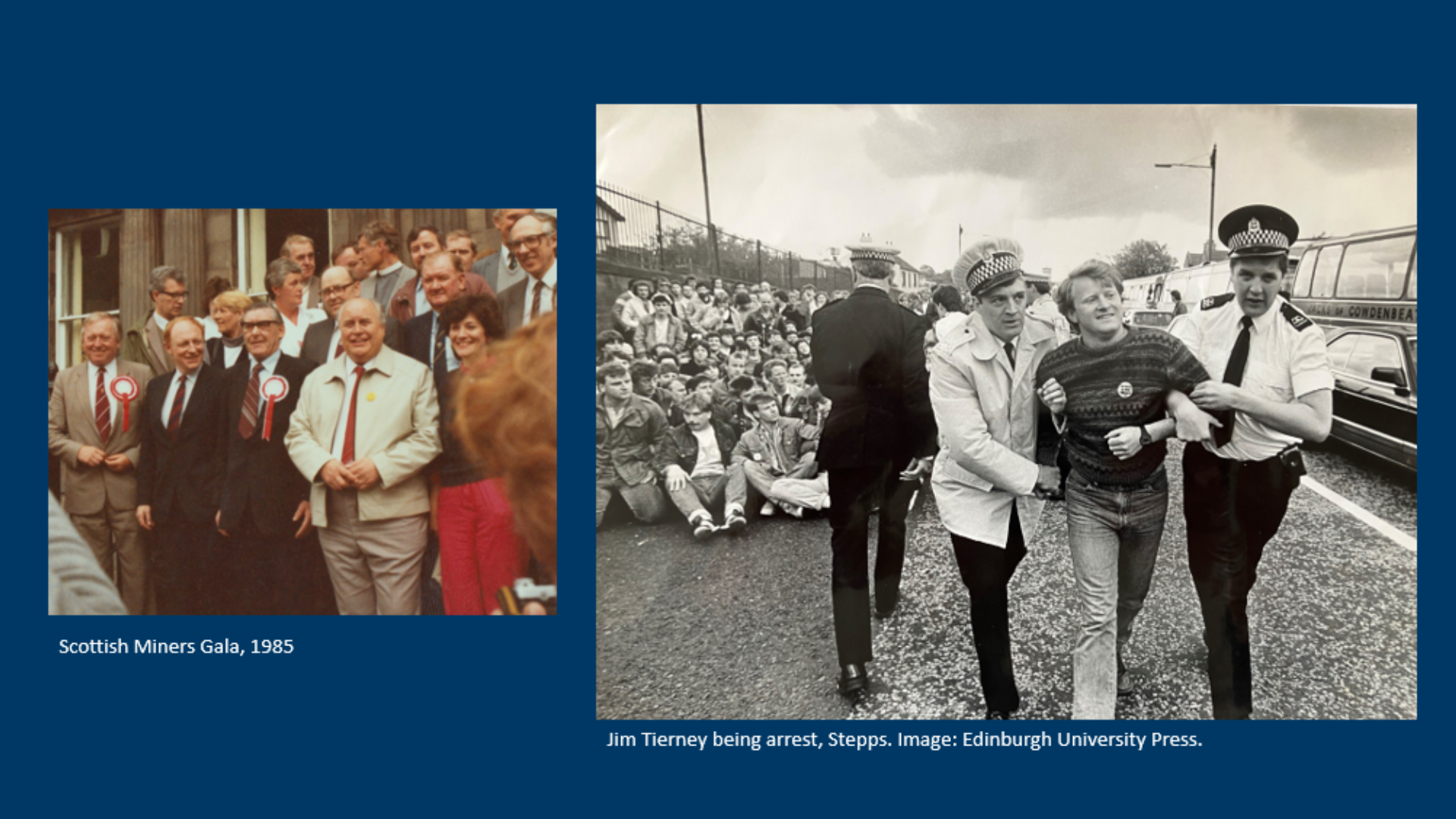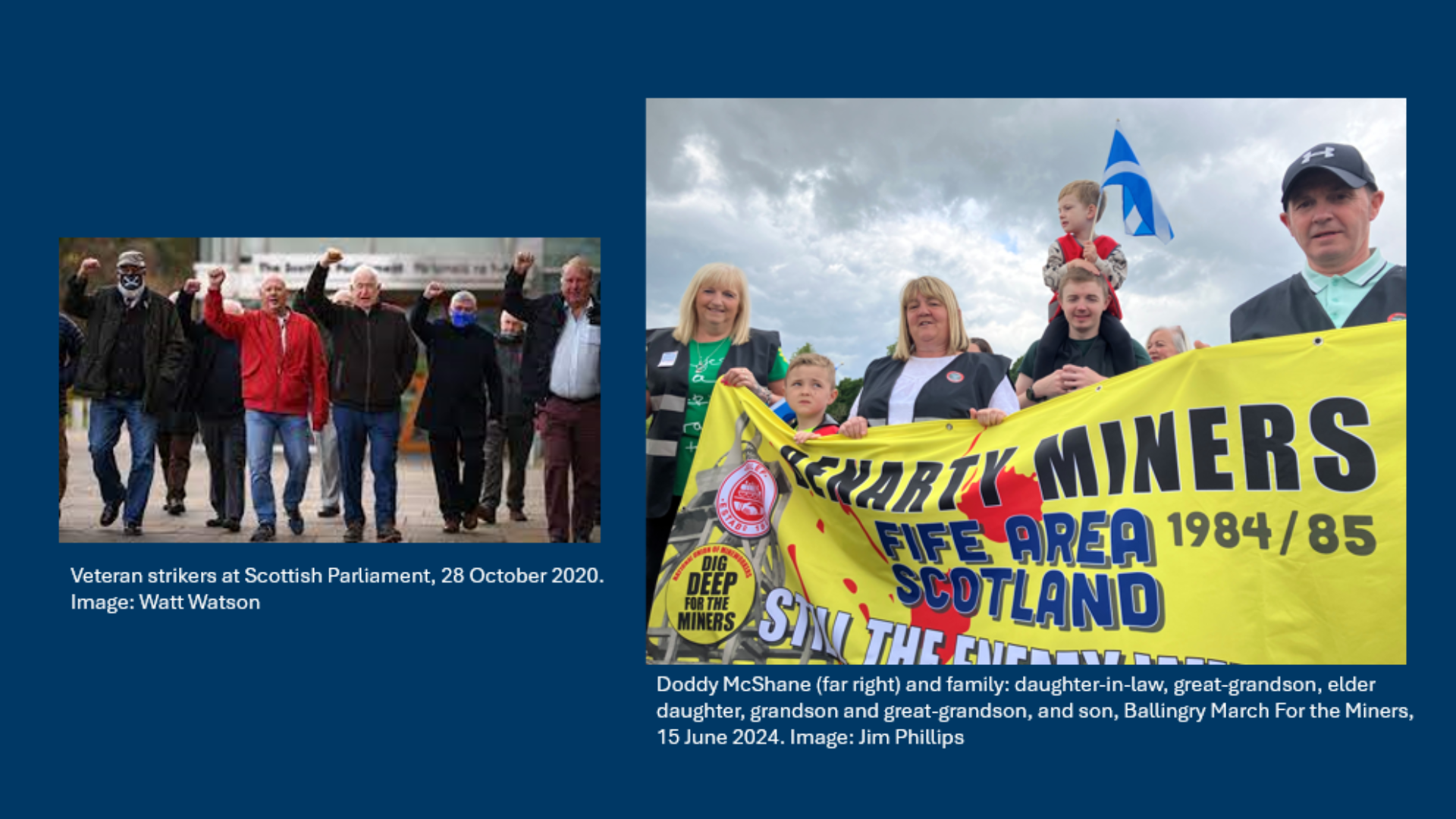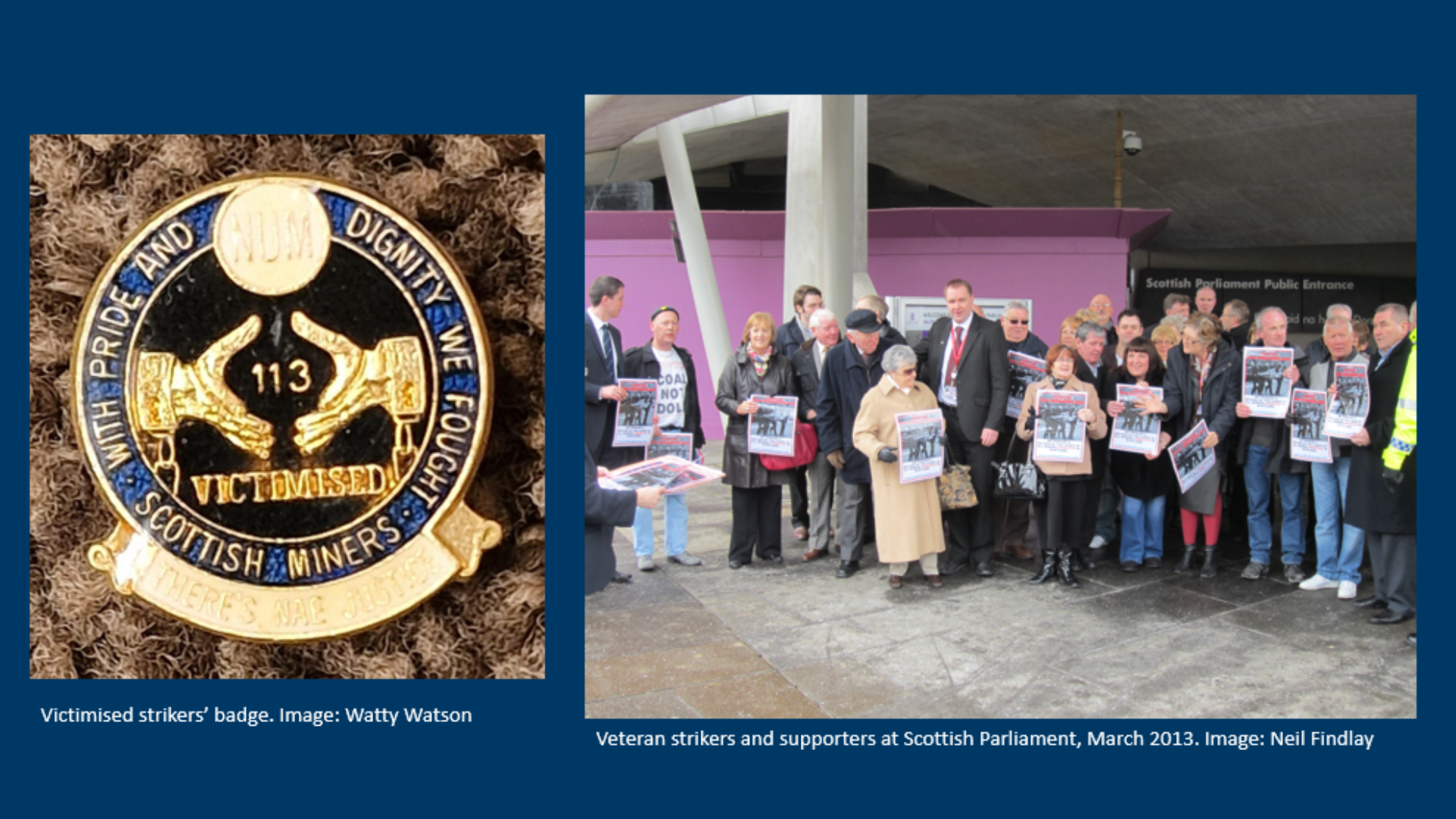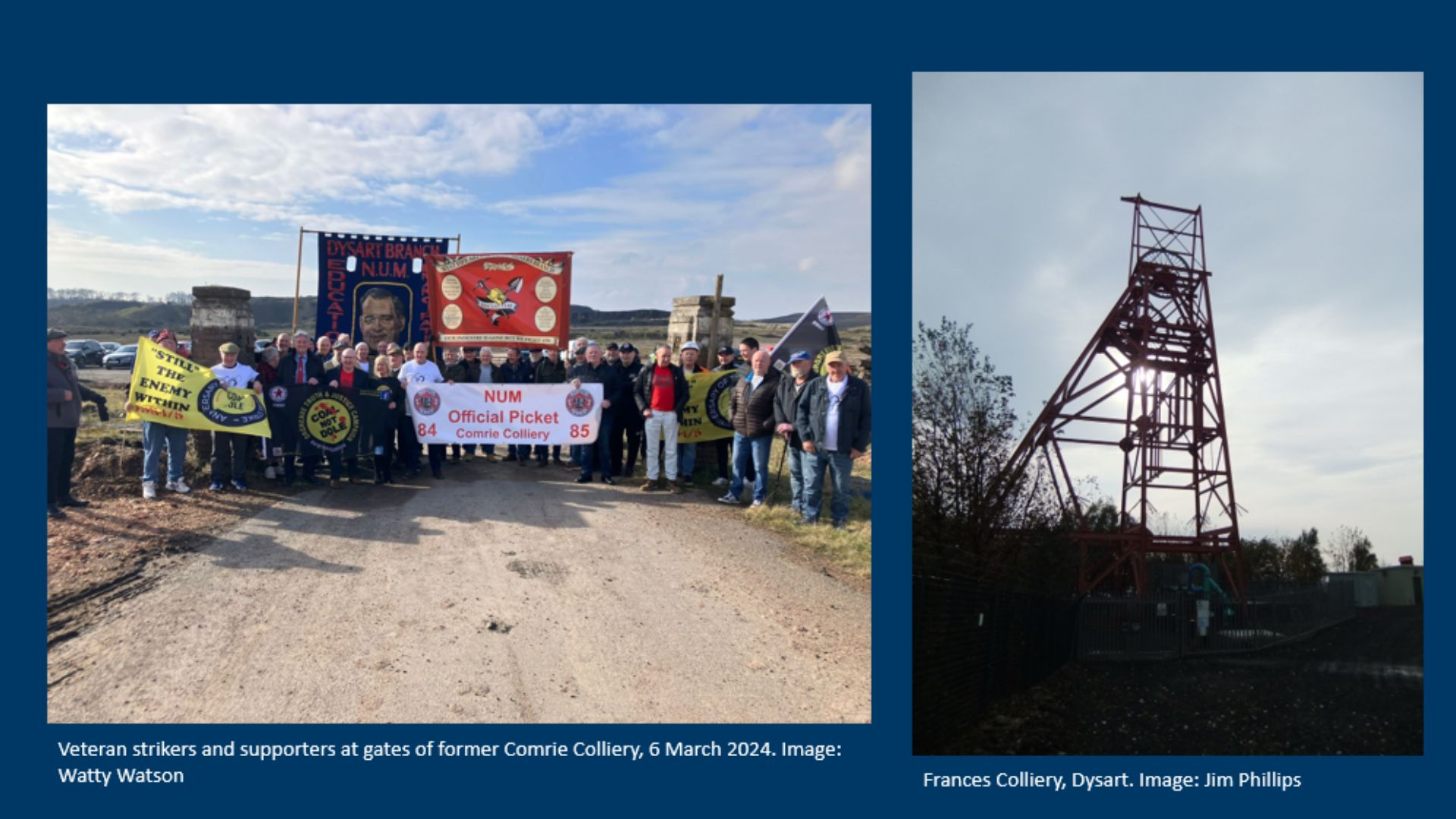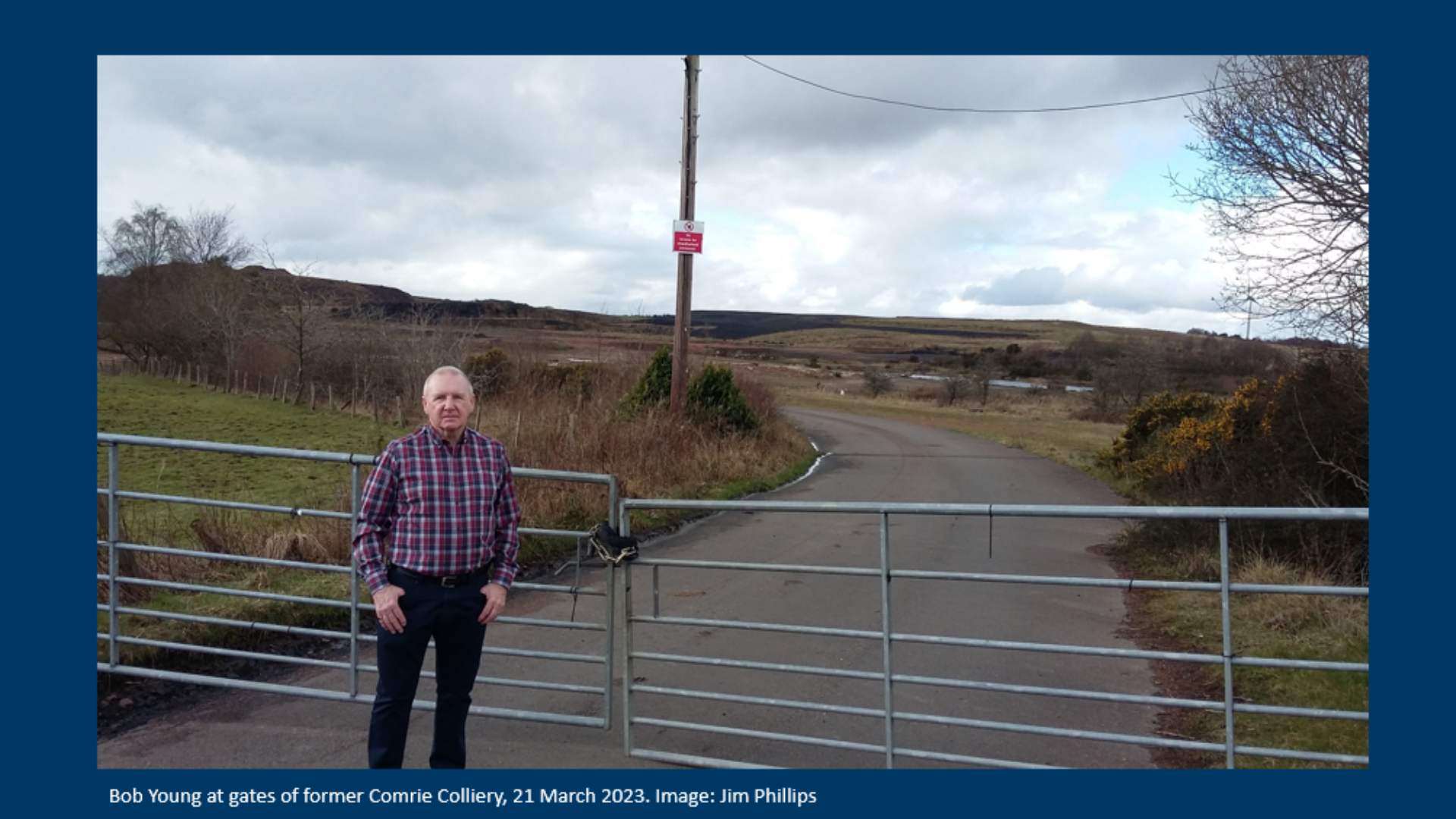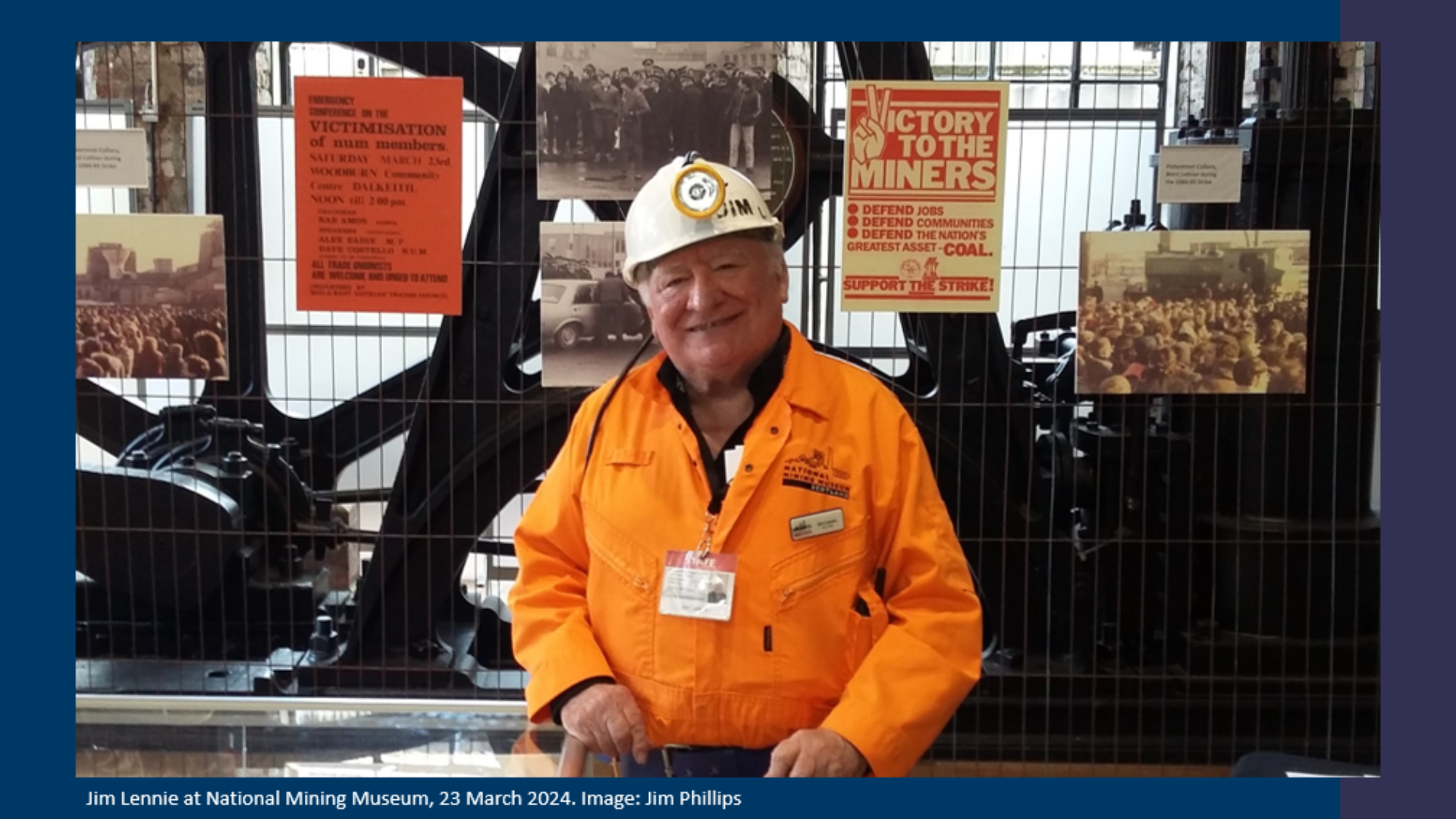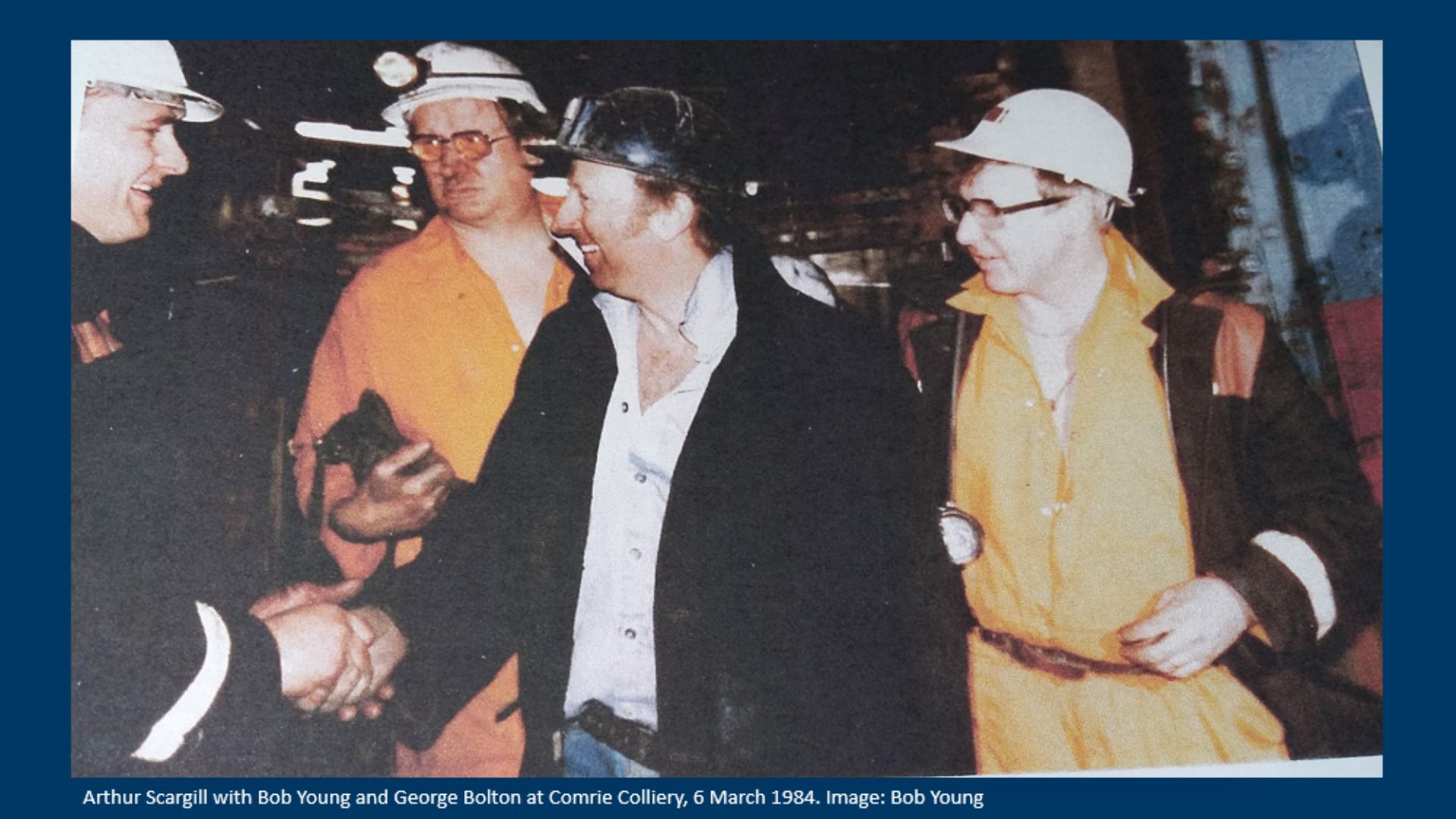Coalfield Justice – remembering the 1984-85 miners’ strike in Scotland
Published: 31 March 2025
Commentary
Prof Jim Phillips shares his reflections following an event in the Scottish Parliament which marked the 40th anniversary of the end of the 1984-85 miners’ strike against pit closures and job losses in Britain.
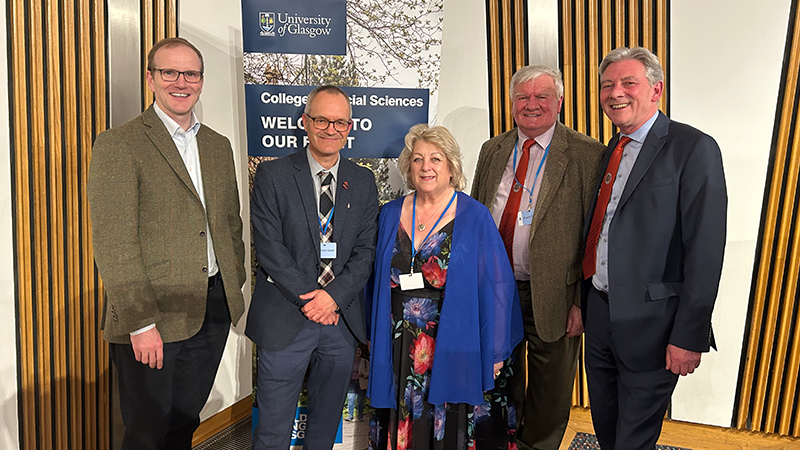
(Photo, left to right: Prof Graeme Roy, Prof Jim Phillips, Cllr Linda Erskine, Nicky Wilson, and Richard Leonard MSP)
On Tuesday 25th March the College of Social Sciences, led by Profressor Graeme Roy, co-hosted ‘Coalfield Justice’ at the Scottish Parliament with Richard Leonard, Labour MSP for Central Scotland. This marked the fortieth anniversary of the end of the 1984-85 miners’ strike against pit closures and job losses in Britain. Fifteen MSPs were present, along with about 35 strike veterans, family members and supporters.
Richard’s introduction, remembering the strike as a movement of class and community, was followed by speeches from Councillor Linda Erskine of Fife, who helped establish the Lochgelly Women’s Action Group during the strike, and Nicky Wilson, President of the National Union of Mineworkers, who led the strike in Lanarkshire. I talked about my recent book, Coalfield Justice, analysing the injustices of the strike, including the acceleration of pit closures afterwards, and the successful campaign which achieved a collective pardon in 2022 from the Scottish Parliament for miners who acquired public order convictions following arrests on picket lines and in communities in 1984-85.
This has been an important year of commemoration. As decades roll on, the number of surviving participants inevitably thins. I’ve been thinking about the passing of time too, while participating in strike anniversary events across Scotland. I’ve been researching the industrial politics and social history of mining in Scotland for two decades. Through close archive readings and oral history interviews, I have established the distinct workplace and community basis of the strike in Scotland, and its unusual pattern of injustice. Strikers in Scotland were twice as likely to be arrested and three times as likely to be sacked as strikers in England and Wales.
This injustice was strategic. Police forces and officials at the National Coal Board, managing the publicly-owned industry, operated as confederates of the UK government. They targeted young activists and union officials for arrest and dismissal. This advanced the government’s aims: intimidating the strikers, while softening resistance to closure of less lucrative collieries. This was to maximise the financial return from the privatisation of coal, eventually achieved in 1994.
The Miners’ Strike (Scotland) (Pardons) Act in 2022 was partial remedy for this injustice, secured after a lengthy trade union and community campaign. My role in this campaign is based on deep personal commitment. Miners gave me and others born in the 1960s a good start. They won the coal which provided us with electricity. They also built the world we grew up in, pushing national and local government to provide decent schools, hospitals and other public services, while maintaining an economy where our mums and dads had steady jobs and a hopeful future.
My colleagues Riyoko Shibe and Ewan Gibbs have been working with the Just Transition Commission in Scotland, supporting oil refinery workers at Grangemouth currently resisting redundancy. These workers in 2025 say they are being treated in the same way as the miners in 1985, and that’s not fair.
This underlines the value of the stories I collected in the coalfields. Personal and collective history matters. Miners have given other workers a vital reference point. Their stories won the Pardons Act, changed how the strike is remembered in Scotland, and redefined what we mean by a just future energy transition.
Jim Phillips is Professor of Economic and Social History in the School of Social and Political Sciences. Coalfield Justice is available from Edinburgh University Press in paperback.
Find out more about the book on the Edinburgh University Press website.
Photo credit - Stepps incident (Jim Tierney being arrest, Stepps. Photo credit: Edinburgh University Press)
First published: 31 March 2025


